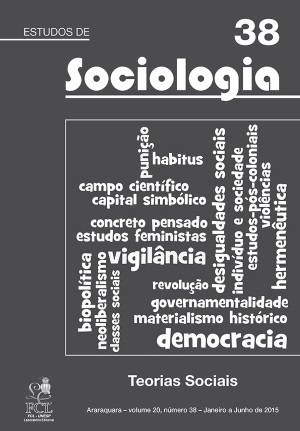The passive revolution of Lula’s governments
Keywords:
Lula’s governments, Passive revolution, Neoliberalism, Bourgeoisie, Popular classes,Abstract
From a set of processes associated to Gramsci’s concept of passive revolution, this article discusses why, for what, by whom, how and with which effectiveness it would have occurred under Lula’s governments. Several aspects have been evaluated, turning plausible the hypothesis that Lula’s governments would have developed essential processes to the full achievement of a passive revolution, suggesting success in strengthening bourgeois domination in Brazil, at least until 2010. The resulting frame seemed to express a successful combination between new practices toward popular classes and maintenance of previous neoliberal practices, in the context of an expressive economic growth and of weakness of the social forces potentially antagonistic, which don’t seem to be obtaining very expressive social support.
Downloads
Downloads
Published
How to Cite
Issue
Section
License

À revista Estudos de Sociologia ficam reservados os direitos autorais pertinentes a todos os artigos nela publicados.
Os artigos publicados e as referências citadas na revista Estudos de Sociologia são de inteira responsabilidade de seus autores.
A Estudos de Socilogia utiliza a licença https://creativecommons.org/licenses/by/4.0/ (CC BY), que permite o compartilhamento do artigo com o reconhecimento da autoria.



